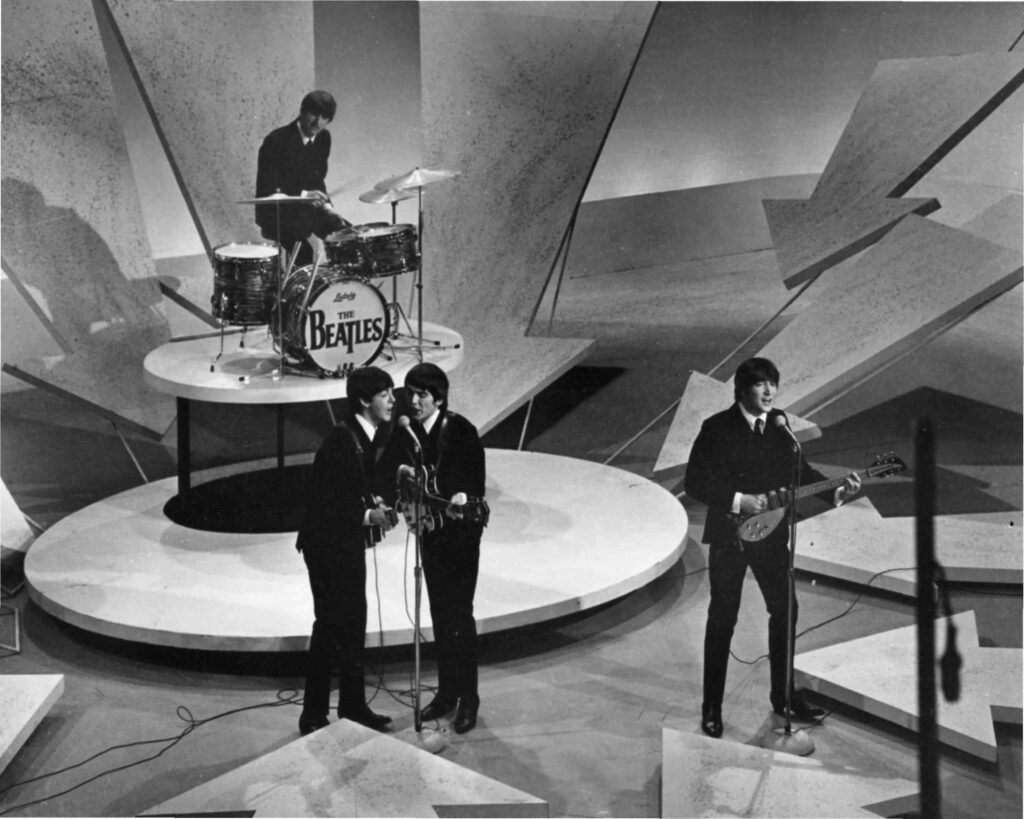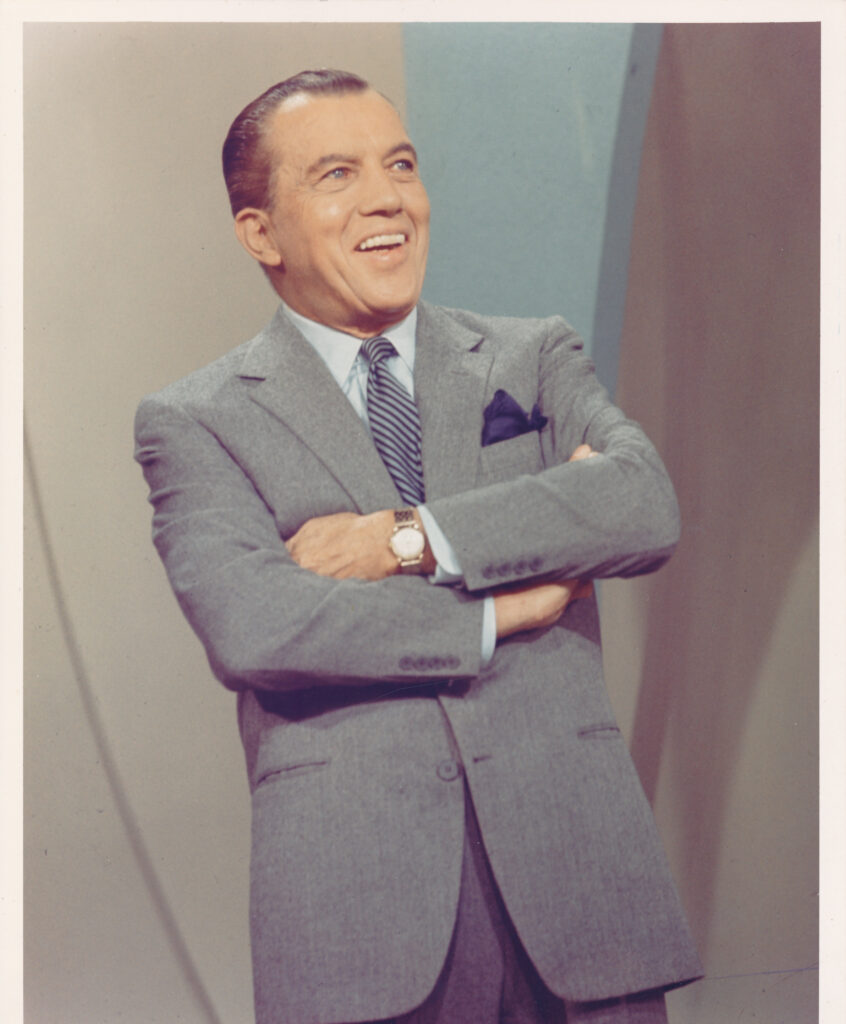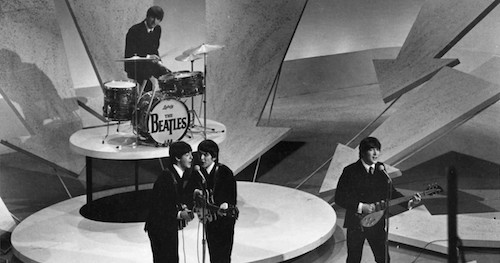
Amazingly, it was 60 years ago this month that the Beatles first invaded North America. I had seen The Beatles mentioned in a Walter Cronkite CBS News television program in December 1963, one of the first times they appeared on American television. Although I personally hadn’t watched their two earlier appearances, the Beatles had previously been seen and heard in grainy black-and-white snippets that had aired on the NBC evening news on Monday, November 18 and four days later on the mid-morning Mike Wallace CBS show.
There was a fourth appearance on U.S. TV, of film of the Beatles, prior to their historic live debut on The Ed Sullivan Show on February 9, 1964. That came on the evening of Friday, January 3, when clips from a BBC mini-documentary filmed the previous August were aired on The Jack Paar Program; Paar concluded the sequence by telling us that the Beatles were going to be live on The Ed Sullivan Show the following month.
Over the years, I spoke with several prominent media and music personalities about the impact of the Beatles’ first American appearances.
Andrew Loog Oldham: (Record producer and author): I was doing the Beatles’ P.R. in early ‘63 and Kenny Lynch and the Beatles were on a tour with Tommy Roe and Helen Shapiro. It was during that tour, between “Please Please Me” and “From Me to You,” that you saw the chaos and the pandemonium grow to explosive proportions. Something had to give—the U.K. was bursting at its Beatled seams—and what finally gave was America.
Before the Beatles went to America, the best possibility that pop music offered was not having to get a regular job. You must remember that Ringo would have happily called it a hard day’s night if he’d made enough money to open a ladies’ hair salon and settle down with [his wife] Maureen. Life was that simple until America entered the equation. America seized the Beatles in the same way people seized Davy Crockett and hula hoops.
Then the Beatles played The Ed Sullivan Show. That was the moment when American youth was feeling the subtext, feeling the great unspoken hurt of a nation still traumatized by the assassination of its president just a few months before. It’s an incredible moment: suddenly American youth had its own music, a reason to be alive.
Watch the Beatles perform “I Want to Hold Your Hand” on The Ed Sullivan Show, Feb. 9, 1964
Martin Lewis: (Writer/producer) To a nation still reeling from the massive emotional trauma of JFK’s assassination, the exuberant optimism of the Fab Four offered solace and the promise of a new beginning. The film clip triggered an astonishing chain reaction that kick-started Beatlemania in the U.S.A. The Beatles would have happened in America anyway, of course.

David Leaf: (Filmmaker) It wasn’t The Ed Sullivan Show that made the Beatles hitmakers either. “I Want to Hold Your Hand” was already at #1 before they were on Ed Sullivan. That broadcast was really a nationwide coronation, because they delivered. Unlike so many wildly anticipated or hyped events that don’t live up to expectation, the Beatles’ February 1964 appearances on The Ed Sullivan Show (especially that first night) exceeded everything we could have imagined.
Davy Jones: (Actor/singer/Monkee) When I was on The Ed Sullivan Show [the same night that the Beatles first appeared—ed.], it was the first time the Beatles appeared in America. I was standing in the elevator and Ringo Starr got in. He’s obviously a nice chap and he’s got his qualities, but he was an ugly bugger. He had this massive nose. Pop singers were sort of like Dave Clark and Paul McCartney. I was always a cheeky little guy. He had a bad cold at the time and he was about to blow his nose. I said, “No, let me hold the handkerchief, I’m closer than you are.” Ringo said, “I know.” And then I saw what happened on the show, and I couldn’t believe it. All these girls started screaming at the Beatles. All these guys were coming right down and jumping on the Beatles and saying, “I got my first set of drumsticks because of you.” I wanted a piece of that action. That’s when it first struck me.
Related: 10 rocking Ed Sullivan Show performances
Andrew Solt: (Producer/director) Usually, when there is a major historic moment, it’s seen on every channel. What makes the first Beatles performance so unusual is that The Ed Sullivan Show was the only place you could see it. Even though their music was everywhere, we had never seen them live. It was a shared joyous moment for an entire generation and still is today. Sullivan knew how to give a show that was for every generation that might be watching. It was for the kids to the grandparents. And he knew how to bottle lightning. And he also knew, because he had great instincts, not only how to produce a show but who to put on and what order.
And he really was the arbiter of taste for a period of time, which was that postwar era, the birth of television, until the birth of the ’70s. It is a remarkable reflection of American history. Ed liked his role as showbiz kingpin, and he knew he was very fortunate to be such a powerful arbiter of American taste. He took pleasure in influencing our culture and acts that would make us gasp and swoon. He was an unlikely hero.
The Beatles’ “red” and “blue” albums were upgraded in 2023. They’re available in the U.S. here and in the U.K. here. Author Harvey Kubernik’s books are available here.


1 Comment
Ah, The Beatles….Where the RUBBER soul met the abbey ROAD….And we are the better for it